Why You Need Microwave-Safe Measuring Cups and Spoons in Your Kitchen
Measuring cups and spoons that are safe to use in the microwave are designed to handle high heat without warping, melting, or leaching harmful chemicals into your food. They play a vital role in helping you measure ingredients accurately during cooking or baking, especially when heating or melting is part of the recipe.
Crafted from microwave-resistant materials such as food-grade plastic, heatproof glass, or flexible silicone, these tools are built to last and ensure peace of mind while you cook. Their heat tolerance makes them ideal for tasks like melting butter, warming liquids, or preparing ingredients that need to be preheated.
By choosing microwave-safe options, you streamline your cooking routine. You can heat and measure in the same container—saving time and reducing cleanup. It’s a smart and convenient upgrade for any kitchen. Be sure to verify the product packaging or manufacturer’s guidelines to ensure the utensils are genuinely safe for microwave use.
The Importance of Microwave Safety
Microwave safety isn’t just about preventing messes—it’s about protecting your health and extending the life of your kitchen tools. Using non-microwave-safe utensils can lead to chemical contamination or even damage your microwave.
This is why having microwave-safe measuring cups and spoons is essential. They improve the efficiency of your cooking while keeping safety a top priority. In this article, we’ll discuss the importance of microwave safety and guide you in selecting the right tools for your kitchen.
✅ Pros
- Safe for Heating Ingredients
No need to transfer melted butter or warmed milk—just measure and microwave in the same cup. It saves time and effort. - Reduces Kitchen Clutter
You can measure, heat, and pour all using one tool. Fewer dishes mean less mess and easier cleanup. - Great for Quick Recipes
Perfect for melting chocolate, warming liquids, or prepping quick microwave meals without extra cookware. - Clear, Easy-to-Read Markings
Most come with bold measurement lines, helping you avoid guesswork while cooking or baking. - Space-Saving Designs
Nesting sets make them easy to store in tight kitchen drawers or cabinets. - Easy to Clean
Most microwave-safe sets are dishwasher-friendly, making them hassle-free after use.
❌ Cons
- Plastic May Not Last Long
Some cheaper plastic versions can warp or discolor after repeated microwave use. - Markings Can Wear Off
Over time, the printed measurements may fade—especially if washed frequently. - Gets Very Hot in Microwave
Glass or even some thick plastic cups can become dangerously hot. You’ll need to use oven mitts. - Not Ideal for All Cooking Tasks
These tools are handy for microwave use but not suitable for stovetop or oven cooking. - Limited Volume in Spoons
Measuring spoons are great for dry ingredients, but they’re not practical for heating anything beyond a few tablespoons.
Health Considerations
Using microwave-safe measuring cups and spoons helps to avoid health risks. Some materials can release harmful chemicals when heated. Always choose utensils made from safe materials like silicone, glass, or microwave-safe plastic.
Important health factors to consider:
- Prevent Chemical Leaching: Certain plastics can leach chemicals into food when heated.
- Avoid Burns: Microwave-safe utensils are designed to withstand high temperatures, reducing the risk of burns.
- Food Safety: Proper utensils help ensure even cooking, preventing cold spots where bacteria can grow.
Ensuring your measuring cups and spoons are microwave-safe also helps to maintain the nutritional quality of your food. Harmful chemicals can degrade vitamins and minerals, making your meals less nutritious.
Material Compatibility
Different materials react differently in microwaves. Not all measuring cups and spoons are suitable for microwave use. Knowing which materials are safe is crucial for both safety and food quality.
Here’s a quick guide to material compatibility:
| Material | Microwave Safe | Notes |
| Silicone | Yes | Flexible and heat-resistant. |
| Glass | Yes | Great for even heating. |
| Plastic | Depends | Only use microwave-safe marked plastics. |
| Metal | No | Can cause sparks and fires. |
Using the right materials ensures safe and effective microwave use. Always check the manufacturer’s guidelines for your measuring cups and spoons.

Types Of Microwave Safe Materials
Microwave safe measuring cups and spoons are essential tools in any kitchen. They make it easy to measure and heat ingredients without the risk of melting or breaking. Knowing the types of microwave-safe materials can help you choose the right tools for your cooking needs.
Glass
Glass measuring cups are a popular choice for many home cooks. These containers are strong enough to handle high heat without damage. Glass also resists absorbing smells or stains, which makes it a great choice for holding different types of ingredients.
Here are some benefits of using glass measuring cups and spoons:
- Heat-resistant: Safe for microwave use.
- Non-reactive: Does not react with acidic ingredients.
- Easy to clean: Dishwasher safe.
Glass measuring cups are usually transparent, allowing you to see the contents clearly. They also come with measurement markings that are easy to read. This makes them a reliable choice for precise measurements.
Plastic
Measuring cups and spoons made of plastic are budget-friendly and easy to handle due to their lightweight design.. They are made from microwave-safe plastics that do not melt when heated. Plastic is less likely to break if dropped, making it a practical choice for everyday use.
Here are some key features of plastic measuring tools:
- Lightweight: Easy to handle and store.
- Affordable: Budget-friendly options available.
- Non-breakable: Safe for kids to use.
While plastic is convenient, it may absorb strong odors and stains over time. It is important to choose high-quality, BPA-free plastic to ensure safety and durability.
Silicone
Silicone measuring cups and spoons are known for their flexibility and heat resistance. They resist melting or warping even when exposed to high temperatures. Silicone is also non-stick, making it easy to clean and maintain.
Advantages of silicone measuring tools include:
- Flexible: Can bend without breaking.
- Heat-resistant: Safe for microwave and oven use.
- Non-stick: Ingredients do not stick to the surface.
Silicone measuring tools often come in bright colors, adding a fun element to your kitchen. They are also lightweight and easy to store, making them a great addition to any kitchen toolkit.
Choosing The Right Measuring Cups
Measuring cups and spoons are essential tools in any kitchen. Selecting the proper tools can simplify your cooking and baking experience. Microwave safe options add extra convenience. You can heat ingredients without transferring them. This guide will help you pick the best microwave safe measuring tools.
Size Variations
Measuring cups and spoons come in various sizes. Standard measuring cups usually range from 1/4 cup to 1 cup. Spoons range from 1/4 teaspoon to 1 tablespoon. Having a complete set is important. It ensures accurate measurements for your recipes.
Some sets offer extra sizes. These can include 1/8 cup or 1/2 tablespoon. Extra sizes can be handy for precise baking. They can also help when scaling recipes. Look for sets that include these variations.
Here is a common set of sizes:
| Measuring Cups | Measuring Spoons |
| 1/4 cup | 1/4 teaspoon |
| 1/3 cup | 1/2 teaspoon |
| 1/2 cup | 1 teaspoon |
| 1 cup | 1 tablespoon |
Choose a set that fits your cooking needs. Make sure all pieces are microwave safe. This helps you work more efficiently and saves time in the kitchen.
Design Features
Design features can make measuring cups and spoons more user-friendly. Look for ergonomic handles. They provide a better grip. This is especially helpful when measuring liquids. Some sets have handles with non-slip coatings. These can prevent spills and accidents.
Clear measurement markings are crucial. They should be easy to read. Markings that are etched or molded last longer. Painted-on markings can wear off over time. Some sets include both metric and imperial units. This can be useful for international recipes.
Here are some key features to look for:
- Ergonomic handles: Comfortable and easy to grip.
- Non-slip coating: Prevents spills.
- Clear markings: Easy to read and durable.
- Dual units: Metric and imperial measurements.
Microwave safe materials are also important. Glass and certain plastics are good options. Make sure the material is BPA-free. This ensures safety when heating food.
Choosing measuring cups and spoons with these features will enhance your cooking experience. Look for sets that combine functionality and safety.

Selecting Measuring Spoons
Microwave safe measuring cups and spoons are essential tools in every modern kitchen. They ensure accurate measurements and safe usage in microwave ovens. Selecting measuring spoons is a crucial step for both novice and experienced cooks. This guide will help you choose the best measuring spoons based on material choices and capacity options.
Material Choices
Here are some common materials:
- Plastic: Lightweight and often inexpensive. Microwave safe if labeled as such. May absorb odors or stain.
- Stainless Steel: Highly durable and resistant to rust. Not microwave safe but perfect for all other uses.
- Silicone: Flexible and heat-resistant. Safe for microwave use. Easy to clean and store.
Each material has its own benefits and drawbacks. Plastic spoons are budget-friendly but may not last as long. Stainless steel offers longevity but cannot be used in microwaves. Silicone provides a balance of durability and microwave safety.
Consider your specific needs and preferences. Think about how often you use the measuring spoons and for what types of recipes. This will guide you in selecting the best material for your kitchen.
Capacity Options
Measuring spoons come in various sizes to suit different cooking needs. Standard sets usually include:
- 1 tablespoon (15 ml)
- 1 teaspoon (5 ml)
- 1/2 teaspoon (2.5 ml)
- 1/4 teaspoon (1.25 ml)
Some sets offer additional sizes for more precise measurements. Having a range of capacities ensures accuracy in recipes.
Pay attention to the markings on the spoons. Clear and easy-to-read labels help avoid measurement errors. Some spoons have dual markings for different units (e.g., ml and tsp), adding convenience.
Investing in a set with a variety of sizes and clear markings will enhance your cooking experience. It ensures that you always have the right tool for the job.
Using Measuring Tools In The Microwave
Microwave-safe measuring cups and spoons are essential tools in the kitchen. These tools help you measure ingredients accurately. Using them in the microwave can be very convenient. But it’s important to know the right way to use them. This helps avoid any damage or safety risks.
Temperature Limits
Knowing the temperature limits. Microwave-safe cups and spoons can handle high heat. But each material has its own limits. Plastic measuring tools may melt at high temperatures. Glass and ceramic tools are usually more heat-resistant. Always check the manufacturer’s guidelines.
Here is a table showing common materials and their temperature limits:
| Material | Temperature Limit (°F) |
| Plastic | 200-250 |
| Glass | 500 |
| Ceramic | 450 |
Always keep an eye on the microwave. Never leave it unattended. This ensures safety and prevents accidents. Microwave-safe does not mean heat-proof. Be cautious and follow the guidelines. This keeps your tools in good shape and extends their life.
Proper Techniques
Using proper techniques ensures your measuring tools last long. Place the measuring cup or spoon in the microwave. Make sure it is microwave-safe. Do not use metal tools. They can cause sparks and fires. Always use tools made of plastic, glass, or ceramic.
Stir the contents of the measuring cup halfway through heating. This ensures even heating. Avoid overfilling the measuring cup. Leave some space at the top. This prevents spills and messes. Use a microwave cover or lid. This keeps the microwave clean.
Here are some quick tips:
- Always read the manufacturer’s instructions.
- Do not use damaged or cracked measuring tools.
- Clean the tools after each use.
- Store them properly to avoid damage.
Following these steps ensures safe and effective use of microwave-safe measuring tools. Your kitchen will be cleaner and safer.
Cleaning And Maintenance Tips
Microwave safe measuring cups and spoons make cooking and baking easier. They save time and effort. Knowing how to clean and maintain them is key. Proper care ensures they last long. Let’s explore some tips on cleaning and maintenance.
Dishwasher Safety
Many microwave safe measuring cups and spoons can go in the dishwasher. Before placing them inside, check the manufacturer’s instructions. This ensures they won’t get damaged.
Here are some general tips for dishwasher safety:
- Place cups and spoons on the top rack. This keeps them away from intense heat.
- Avoid using very hot water cycles. High heat can warp the plastic.
- Use mild detergents. Strong chemicals can damage the material.
It’s important to load them properly. Spread them out to avoid contact with other utensils. This prevents scratches and ensures a thorough clean. Always let them cool before using them again. Hot items can be brittle and break easily.
Avoiding Scratches
Scratches can harbor bacteria and make measuring cups and spoons unsafe. Here are some tips to avoid scratches:
Handle them gently during use. Avoid using metal utensils with them. Metal can easily scratch the surface.
Here’s a list of things to consider:
- Use soft sponges for cleaning. Abrasive pads can cause scratches.
- Store them separately. Don’t stack them with other heavy kitchen tools.
- Clean them immediately after use. Dried food can be harder to remove and may require scrubbing.
By following these steps, your measuring cups and spoons will stay in good shape. This keeps them safe and extends their life. Enjoy hassle-free cooking with well-maintained tools!
Common Myths Debunked
Microwave safe measuring cups and spoons are essential tools in the kitchen. Many people worry about using them in the microwave. This blog will debunk common myths about these kitchen tools. It’s time to understand the truth and make informed choices.
Plastic Dangers
Many think plastic measuring cups and spoons are unsafe in the microwave. This myth often scares people. It’s important to know that not all plastics are dangerous. Look for labels that say “microwave safe.” These plastics are designed to withstand microwave heat.
Some plastics can melt or release harmful chemicals. Always check the label before using them in the microwave.
Here are some tips to ensure safety:
- Use only microwave-safe plastics.
- Avoid heating food in cracked or damaged plastic.
- Do not use plastic that looks cloudy or warped.
Another common myth is that all microwaved plastics release toxic chemicals. Microwave-safe plastics are tested for safety. They do not release harmful substances when used correctly. Always follow the manufacturer’s instructions.
Plastic measuring cups and spoons can be safe and convenient. They are lightweight and easy to use. Understanding the facts can help you use them without worry.
Glass Fragility
Many people believe glass measuring cups and spoons are too fragile for the microwave. This myth can be misleading. Microwave-safe glass is designed to handle heat. It is much stronger than regular glass.
Some believe that glass can shatter easily in the microwave. This is not always true. Microwave-safe glass is made to withstand temperature changes.
Here are some tips for using glass measuring tools safely:
- Check for the “microwave safe” label.
- Avoid sudden temperature changes.
- Do not use cracked or chipped glass.
Glass measuring cups and spoons are durable and safe. They do not absorb food colors or smells. They are also easy to clean. Here is a quick comparison between glass and plastic:
| Feature | Glass | Plastic |
| Weight | Heavier | Lighter |
| Durability | Very durable | Less durable |
| Heat Resistance | High | Varies |
Understanding these facts can help you choose the right tools. Microwave-safe glass and plastic are both excellent choices.
Top Brands To Consider
Microwave safe measuring cups and spoons are essential in every kitchen. They make cooking and baking easy and safe. Many brands offer these handy tools, but which ones are the best? We’ll explore some top brands to consider. This will help you make the best choice for your kitchen needs.
Quality Ratings
High-quality measuring cups and spoons are key to accurate cooking. Here are some top brands and their quality ratings:
| Brand | Quality Rating (out of 5) |
| Pyrex | 4.8 |
| OXO | 4.7 |
| KitchenAid | 4.6 |
| Nesting Cups | 4.5 |
Pyrex is known for its durability and heat resistance. Many users trust this brand. OXO offers ergonomic designs and easy-to-read measurements. KitchenAid provides colorful, sturdy options that are also microwave safe. Nesting Cups are space-saving and often come with easy-pour spouts.
User Reviews
Customer reviews give insights into real-life use of these products. Here are some user opinions:
- Pyrex: “These cups don’t warp in the microwave. They are very sturdy.”
- OXO: “Love the clear markings and comfortable grip. Perfect for daily use.”
- KitchenAid: “Bright colors make them easy to find. They are also very durable.”
- Nesting Cups: “Great for small kitchens. They stack neatly and save space.”
Most users appreciate the durability of Pyrex. OXO receives praise for its clear markings and design. KitchenAid is loved for its colorful and sturdy build. Nesting Cups are a hit for their space-saving feature.

Frequently Asked Questions
Yes, you can put a microwave-safe measuring cup in the microwave. Ensure it is labeled microwave-safe. Avoid metal or non-microwave-safe plastic.
Yes, Anchor Hocking measuring cups are microwave safe. They are made from durable, heat-resistant glass.
Yes, Fire King measuring cups are microwave safe. They are made from durable glass designed to withstand microwave heat.
Yes, Pyrex glass measuring cups are safe. They are made from durable tempered glass, resistant to heat and cold. Always follow the manufacturer’s guidelines for proper use.


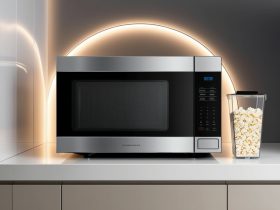
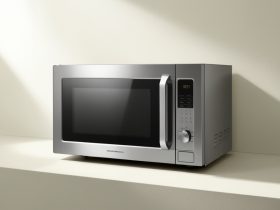
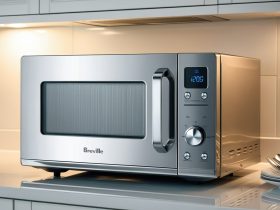
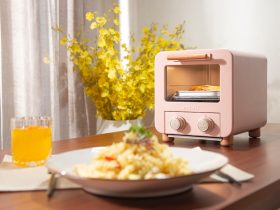
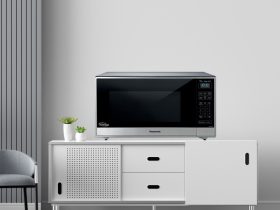
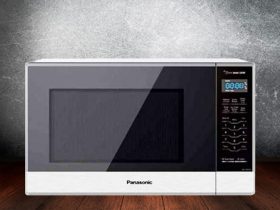
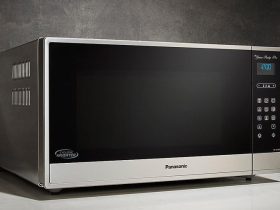
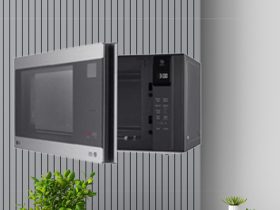
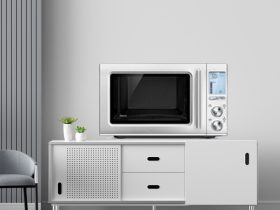
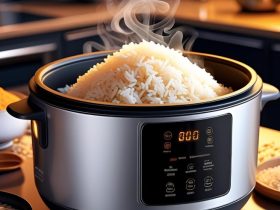
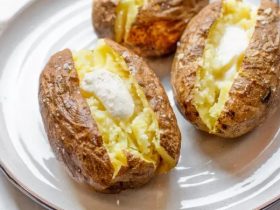
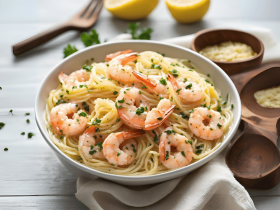
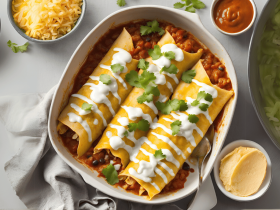

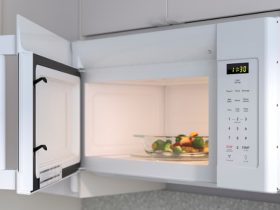
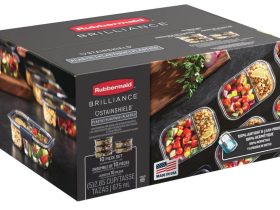
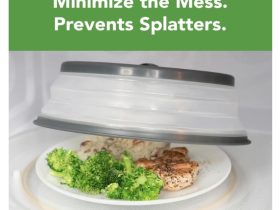
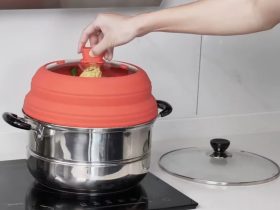
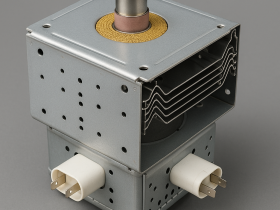
Leave a Reply